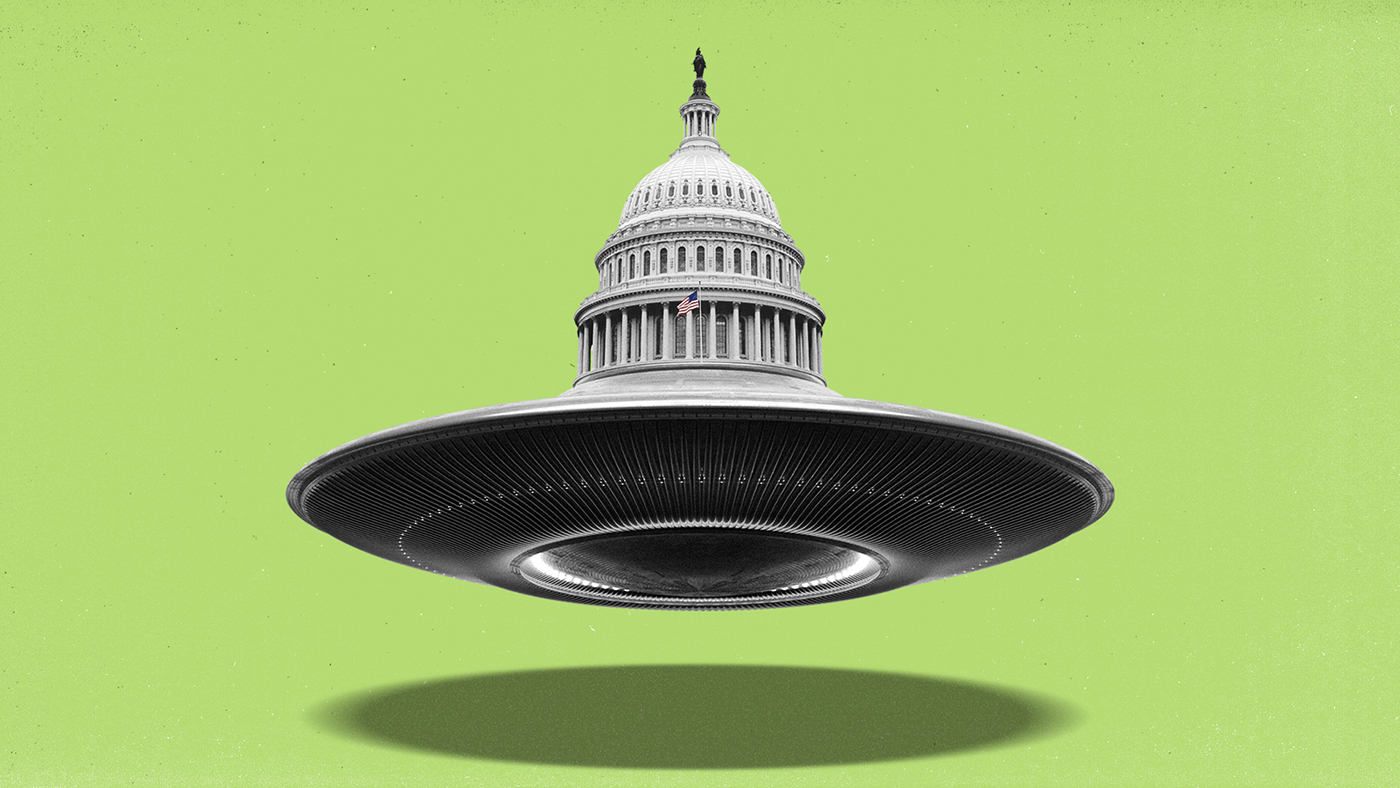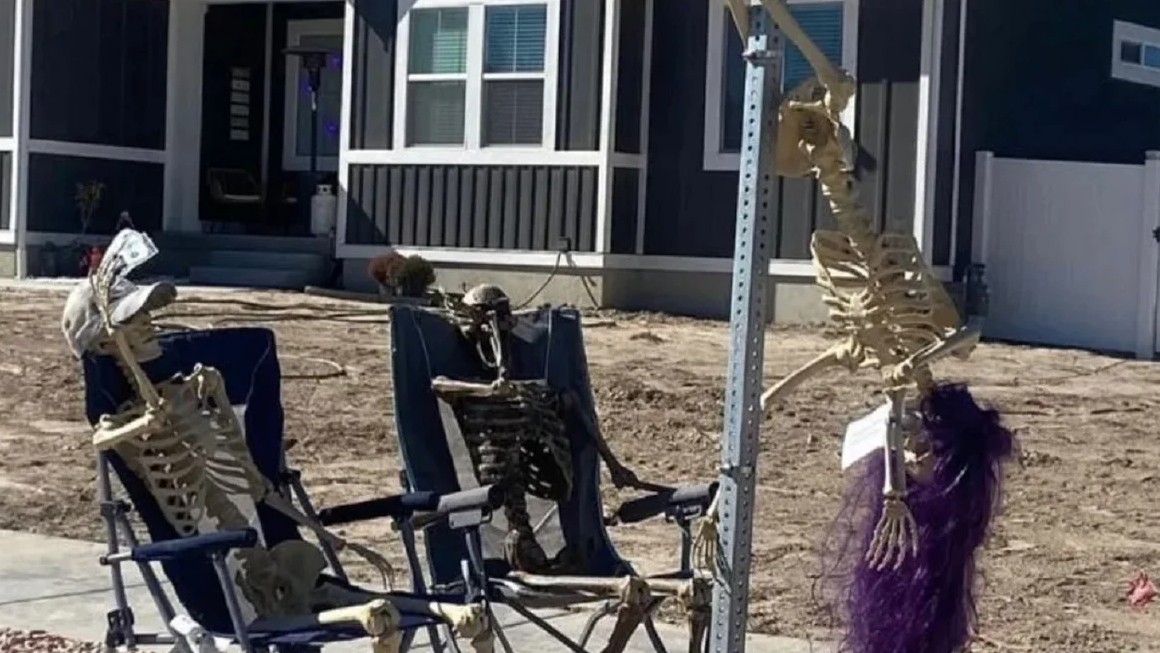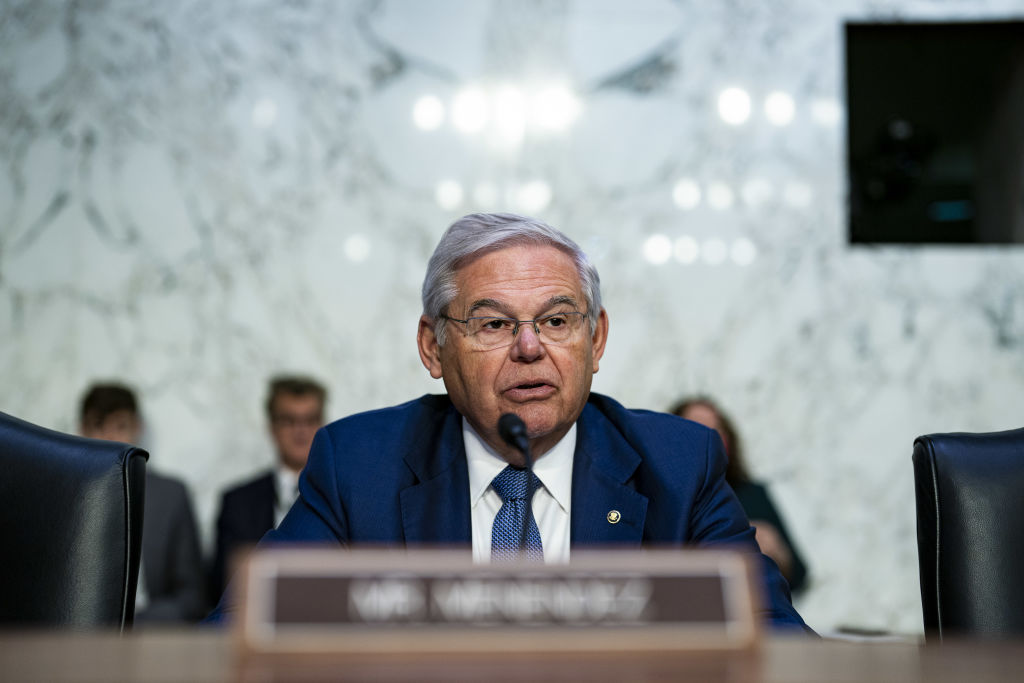UFO hearing: why is Washington suddenly embracing aliens?
Speculation of extraterrestrial life has moved from ‘conspiracy fringe’ to Congress

A free daily email with the biggest news stories of the day – and the best features from TheWeek.com
You are now subscribed
Your newsletter sign-up was successful
A UFO “whistleblower” told Congress this week that the US government has uncovered extraterrestrial bodies and spaceships from crash sites.
David Grusch, a former US Air Force intelligence officer, told politicians that the White House has secretly been retrieving unidentified flying objects for decades, and claimed that “non-human biologics” have been found.
His testimony has been seen as a turning point in the question of extraterrestrial life. “Focusing on possible alien visitors has been the pursuit of a conspiracy-minded fringe,” said Henry Mance in the Financial Times. “But this week’s congressional hearing is a sign of its increased respectability.”
The Week
Escape your echo chamber. Get the facts behind the news, plus analysis from multiple perspectives.

Sign up for The Week's Free Newsletters
From our morning news briefing to a weekly Good News Newsletter, get the best of The Week delivered directly to your inbox.
From our morning news briefing to a weekly Good News Newsletter, get the best of The Week delivered directly to your inbox.
What did the papers say?
Grusch’s testimony “marks a significant turning point”, wrote Dani Di Placido for Forbes, as “decades of lore cultivated by the UFO community has spread from conspiratorial podcasts and UFO forums to Congress”.
Some viewers watched “slack-jawed” during the testimonies, wrote Tim Stanley for The Telegraph, but others were unconvinced. It was a “truly extraordinary claim, begging for extraordinary evidence”, wrote Seth Shostak, senior astronomer at the SETI Institute, for MSNBC. “But where is the evidence?”
“Admitting that aliens could be here is a far cry from claiming that they are here,” added Shostak. He wondered why such aliens “somehow manage to arrange things so that they’re exclusively met by government employees anxious to hide them”.
Stanley noted that the issue “goes back to at least the 1960s”, and former US presidents Jimmy Carter and Gerald Ford “claimed to have seen spaceships”. But the US is becoming more focused on the topic.
A free daily email with the biggest news stories of the day – and the best features from TheWeek.com
“Modern UFOmania began with a series of New York Times articles published in 2017,” wrote Jacob Aron for New Scientist. The pieces “detailed a defunct US Department of Defense programme, backed by top US senators, dedicated to investigating flying objects with no explanation”, he recalled. This combination of “military bigwigs, senior politicians and a normally sober newspaper opened the door to taking UFO claims seriously”, he wrote.
This modern acceleration of speculation across the US has been reflected in its political neighbourhood. Congresswoman Anna Paulina Luna said this week that the US government had been “gas lighting” ordinary Americans, while her fellow Republican Tim Burchett described it as a “cover up”. “In the Baptist church we’d say the devil’s been in our way… well the devil’s been in our way in this thing,” he said.
Robert Garcia, a Democrat, was “more moderate”, said Stanley, urging people to “come to this hearing with an open mind” as America has already been torn apart by “partisanship and alternative facts”.
Many are wondering why US politicians are becoming so increasingly engaged with the UFO question. Some have attributed the Pentagon’s “sudden interest of UFOs” as a “cynical effort to expand military funding”.
Others believe politicians see the issue as an opportunity to shine a light into corners that remain murky. “From the outset, both Republicans and Democrats invoked one word to highlight what the hearing was all about: transparency,” wrote Greg Eghigian for the Los Angeles Times.
The representatives “insisted on greater transparency from the military, from the intelligence community and from private defense contractors”, he noted.
Or was it just another opportunity for partisan point-scoring, he wondered. Two Republicans, Glenn Grothman and Virginia Foxx, used the occasion to “castigate” the Biden administration for its handling of the Chinese balloon incident back in February. “The call for openness is sometimes just partisan politics by other means,” he said.
What next?
There is now pressure to look into what Grusch told Congress and even some sceptics are in favour of such a step. “There’s nothing wrong with investigating these claims,” said Forbes’ Di Placido, and “if enough people believe that this is a phenomenon worth looking into, then by all means, the US government should look into it”.
However, he said he remains unconvinced much will be found because Grusch’s full story is a “wild ride, featuring Mussolini and the Vatican conspiring to cover up evidence of alien life”, before “the US supposedly took over and took care of all those alien crash landing sites in secret”.
There is a suspicion that some believers will never be satisfied. Across the globe countries including Australia, Brazil, Canada, Denmark, Italy, New Zealand and Spain have released “thousands of pages of declassified UFO-related documents”, wrote Eghigian, including around 60,000 pages released by the UK between 2008 and 2013.
Yet “despite this”, UFO enthusiasts and researchers “have not always agreed on how to interpret the released documents and have continued to accuse officials of holding back key records”.
If the Pentagon “starts wheeling out alien bodies and downed spacecraft”, wrote Aron, “New Scientist will enthusiastically report on the most incredible find in human history.
“When the evidence changes, it’s only right to change your mind,” he said, but “until then, we will stick to writing about science.”
Chas Newkey-Burden has been part of The Week Digital team for more than a decade and a journalist for 25 years, starting out on the irreverent football weekly 90 Minutes, before moving to lifestyle magazines Loaded and Attitude. He was a columnist for The Big Issue and landed a world exclusive with David Beckham that became the weekly magazine’s bestselling issue. He now writes regularly for The Guardian, The Telegraph, The Independent, Metro, FourFourTwo and the i new site. He is also the author of a number of non-fiction books.
-
 6 of the world’s most accessible destinations
6 of the world’s most accessible destinationsThe Week Recommends Experience all of Berlin, Singapore and Sydney
-
 How the FCC’s ‘equal time’ rule works
How the FCC’s ‘equal time’ rule worksIn the Spotlight The law is at the heart of the Colbert-CBS conflict
-
 What is the endgame in the DHS shutdown?
What is the endgame in the DHS shutdown?Today’s Big Question Democrats want to rein in ICE’s immigration crackdown
-
 Peruvian 'aliens' aren't really aliens
Peruvian 'aliens' aren't really aliensTall Tales And other stories from stranger side of life
-
 Locals speculate about aliens in Wales
Locals speculate about aliens in WalesTall Tales And other stories from the stranger side of life
-
 Triangle-headed aliens touched Goldie Hawn
Triangle-headed aliens touched Goldie HawnTall Tales And other stories from the stranger side of life
-
 Row over pole-dancing skeleton
Row over pole-dancing skeletonTall Tales And other stories from the stranger side of life
-
 10 things you need to know today: September 23, 2023
10 things you need to know today: September 23, 2023Daily Briefing Sen. Bob Menendez rejects calls to resign following indictment, Ukraine launches missile attack on occupied Crimean city, and more
-
 Would North Korean weapons tilt the war Russia’s way?
Would North Korean weapons tilt the war Russia’s way?Today's Big Question Putin wants to boost ‘depleted stocks’ but Pyongyang’s arms may be in poor condition
-
 What went wrong with the German economy?
What went wrong with the German economy?Today's Big Question ‘Deep-rooted’ and ‘knotty’ problems threaten return of ‘sick man’ label
-
 Why are so many local councils on the brink of bankruptcy?
Why are so many local councils on the brink of bankruptcy?Today's Big Question Inflation, underfunding and growing demand for services has put pressure on local authorities at the worst time